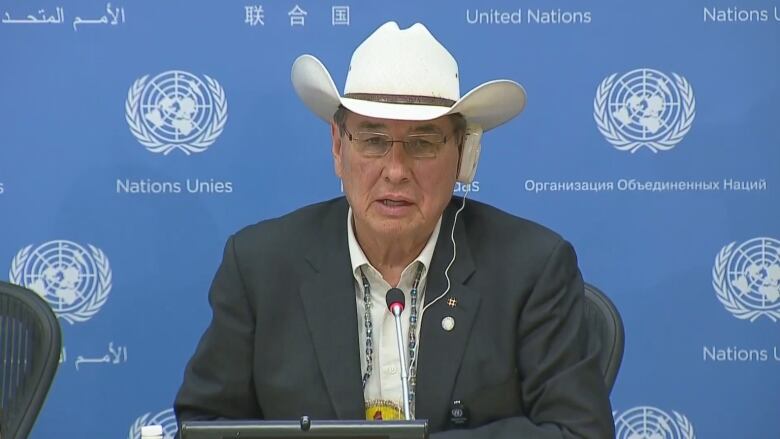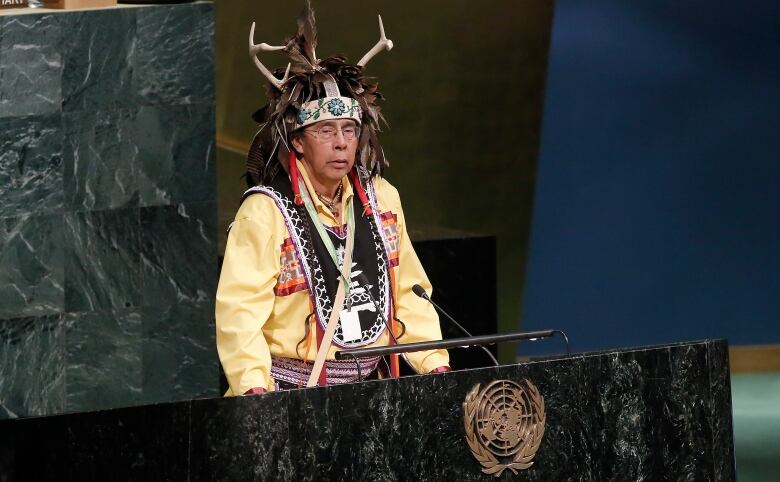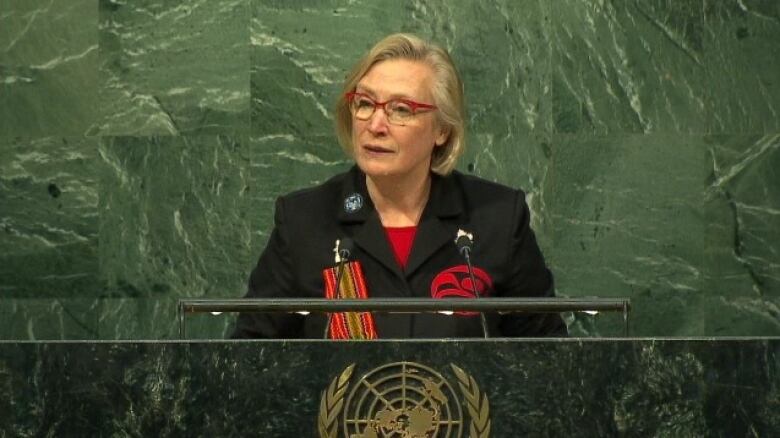Indigenous leaders at UN headquarters to discuss landmark rights declaration
1 year since agreeing to implement a landmark UN Indigenous rights declaration, work remains

First Nations leaders say the federal government still doesn't have a clear path towards making a landmark UN Indigenous rights declaration reality, a year after Canada agreed to implement it.
"No one is monitoring the implementation of the UN declaration across Canada," said Wilton Littlechild, a Cree lawyer, former chief and member of Parliament who worked on crafting the declaration starting in the 1970s.
Littlechild said that since endorsing the declaration in 2010, the United States has put in place a monitoring process thatprovides regular updates on implementation.
"We have yet to see that in Canada and I think it would be a very important step going forward."
Realizing rights
Littlechild and other Indigenous leaders from around the world are at UN headquarters in New York City for the 16th session of the Permanent Forum on Indigenous Issues thatkicked off on Monday.
"The adoption of the UN declaration is a milestone in the history of advancing the rights of Indigenous peoples in Canada and around the world," reads a statement from Perry Bellegarde, national chief of the Assembly of First Nations.

Bellegarde joins Inuit and Mtis leaders in New York City on Tuesday to mark the 10th anniversary of the declaration and to discuss ways of implementing it in Canada.
Action
He points to the proposed federal Indigenous Languages Act as a positive example of the declaration in action.
The cct, announced by Prime Minister Justin Trudeau in December,is being developed in partnership with First Nations, Inuit and Mtis leaders.
In February, Ottawa also announced a review of all federal laws and policies as they relate to Indigenous peoples a move that Indigenous leaders had been calling for as a means of harmonizing the country's laws with the declaration.
- Trudeau announces review of laws related to Indigenous peoples
- OPINION:Trudeau's proposed Indigenous languages act will need teeth to succeed
"We will amend lawswritten in a paternalistic and colonial way and implement direction given to all ministers in [Trudeau's] cabinet," Indigenous Affairs Minister Carolyn Bennett said about the review during her address at the UN on Monday.
"Where they don't exist, we are committed to finding new ways to recognize Indigenous rights and jurisdiction.

Free, prior and informed consent is supposed to mean that Indigenous Peoples are involved in the decision-making process as partners from the beginning of any development, but previous governments felt it amounted to a veto.
LastMay 10, Canada removed its permanent objector status to the United Nations Declaration on the Rights of Indigenous Peoples, almost a decade after 140 countries adopted it in 2007.
The declaration recognizes Indigenous individuals' basic human rights, as well as rights to self-determination, language, equality and land, among others.
With files from Melissa Kent












_(720p).jpg)


 OFFICIAL HD MUSIC VIDEO.jpg)
.jpg)



























































































